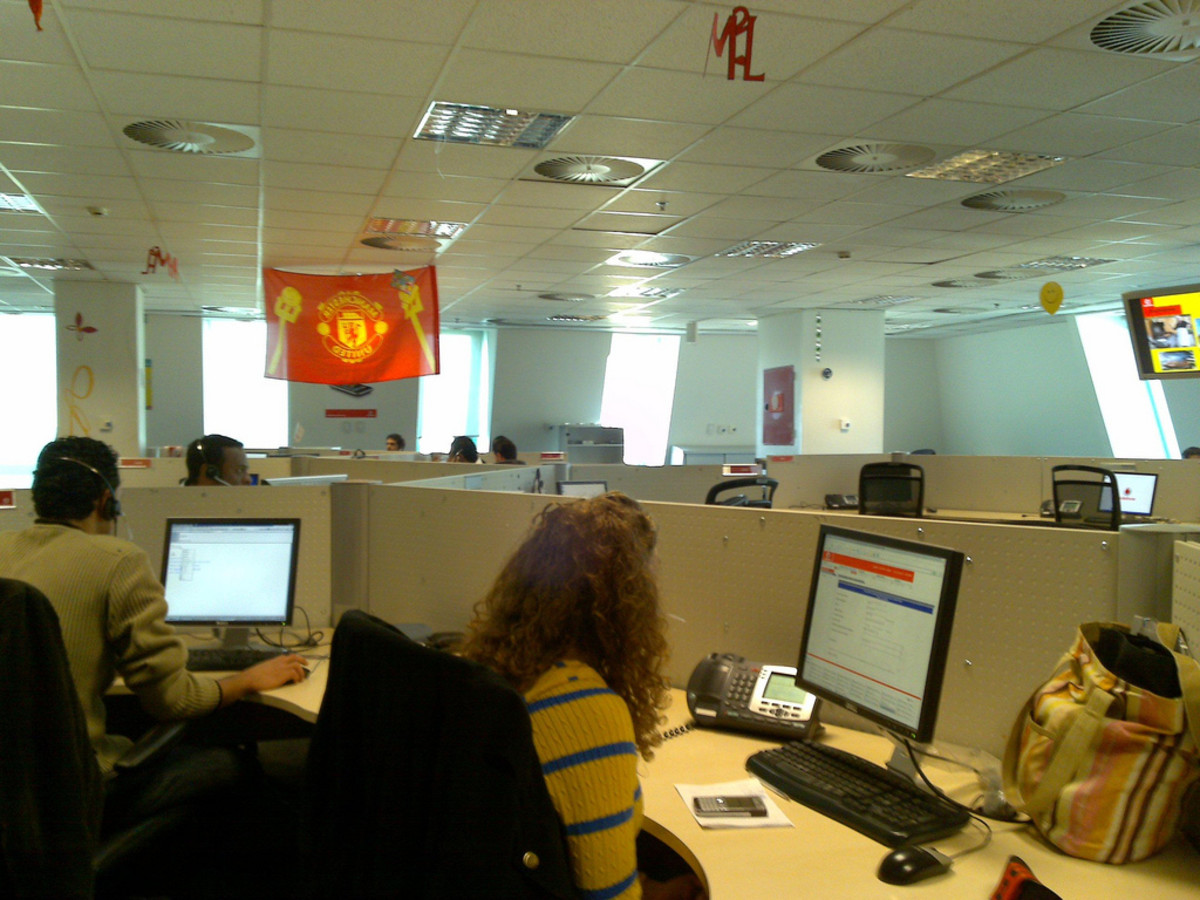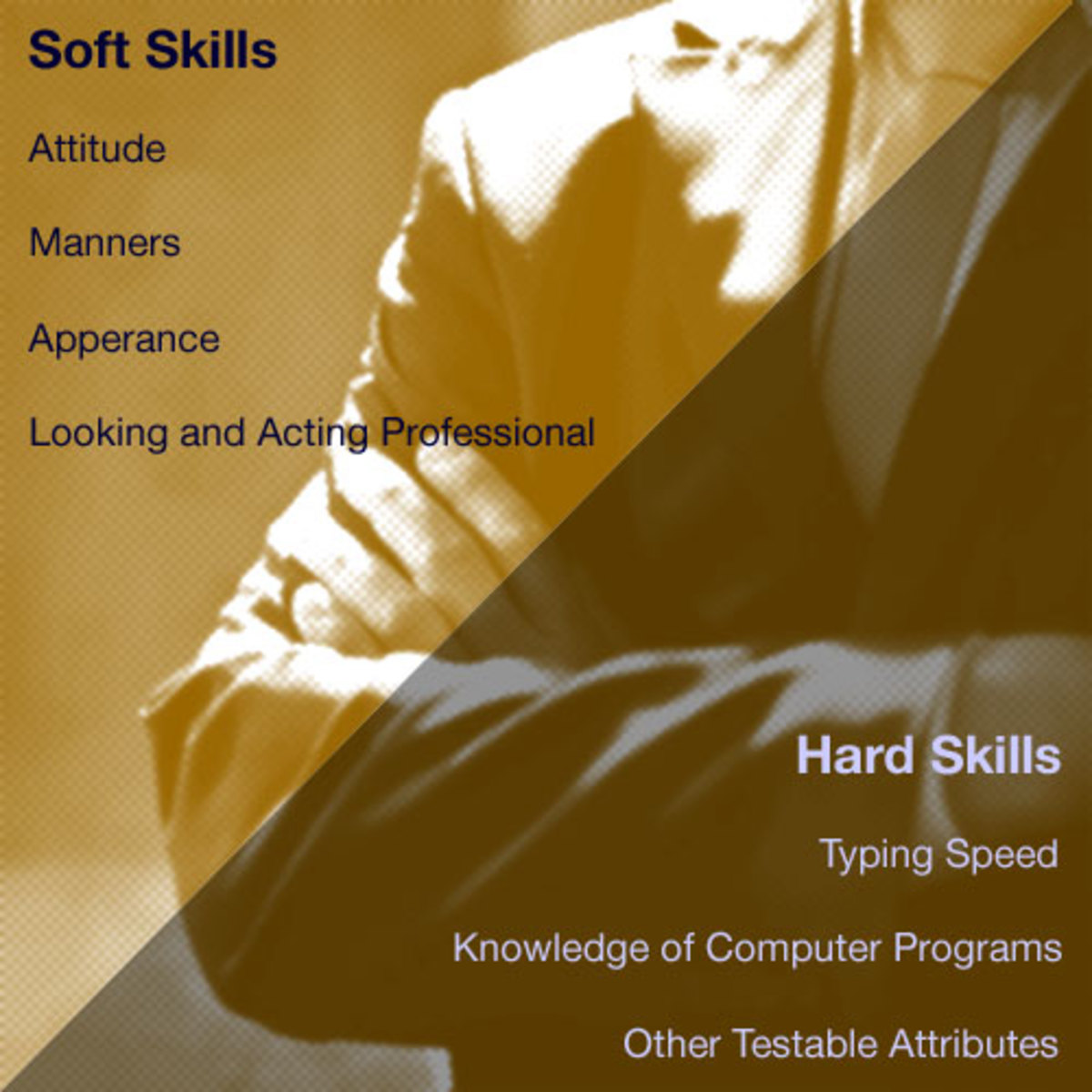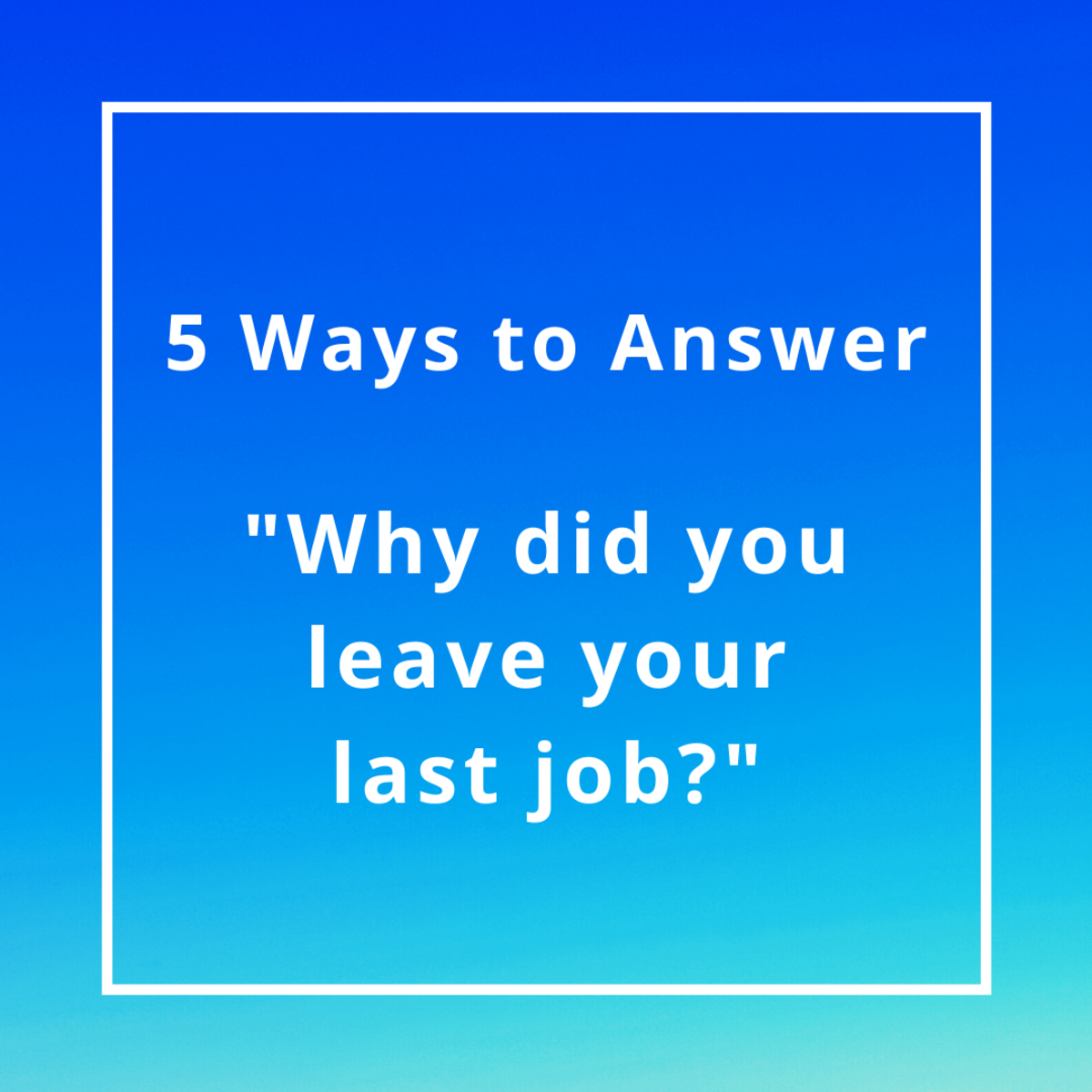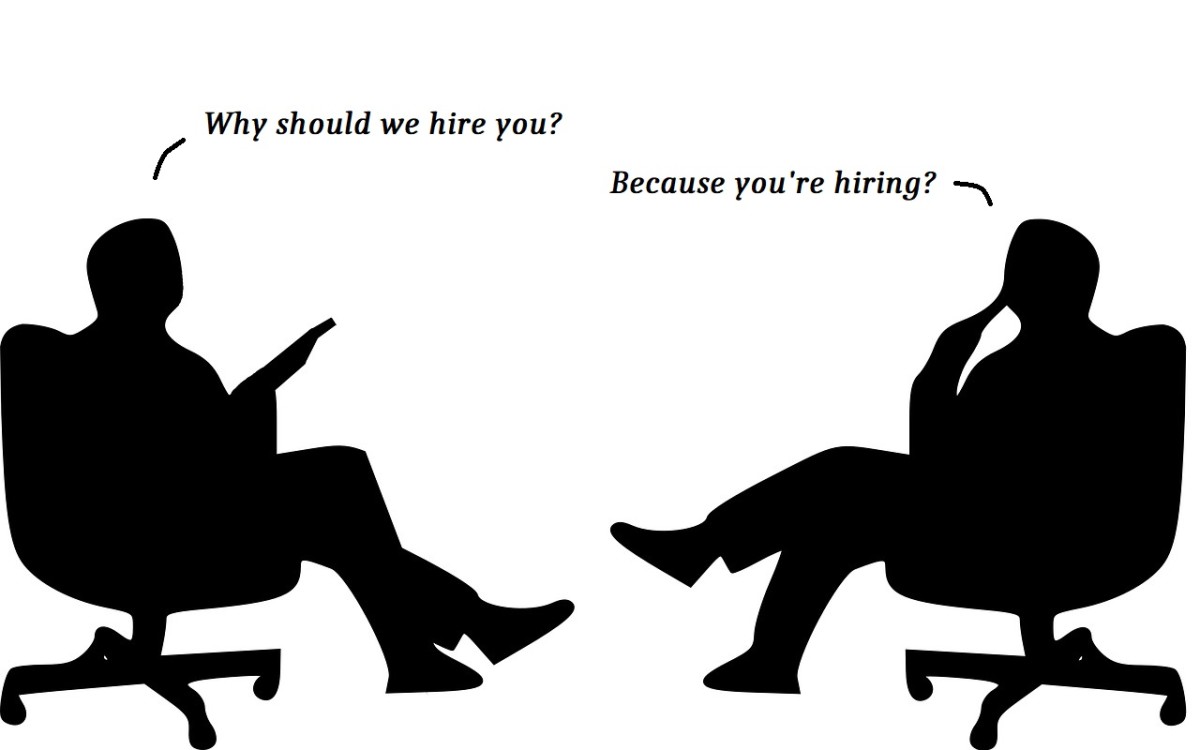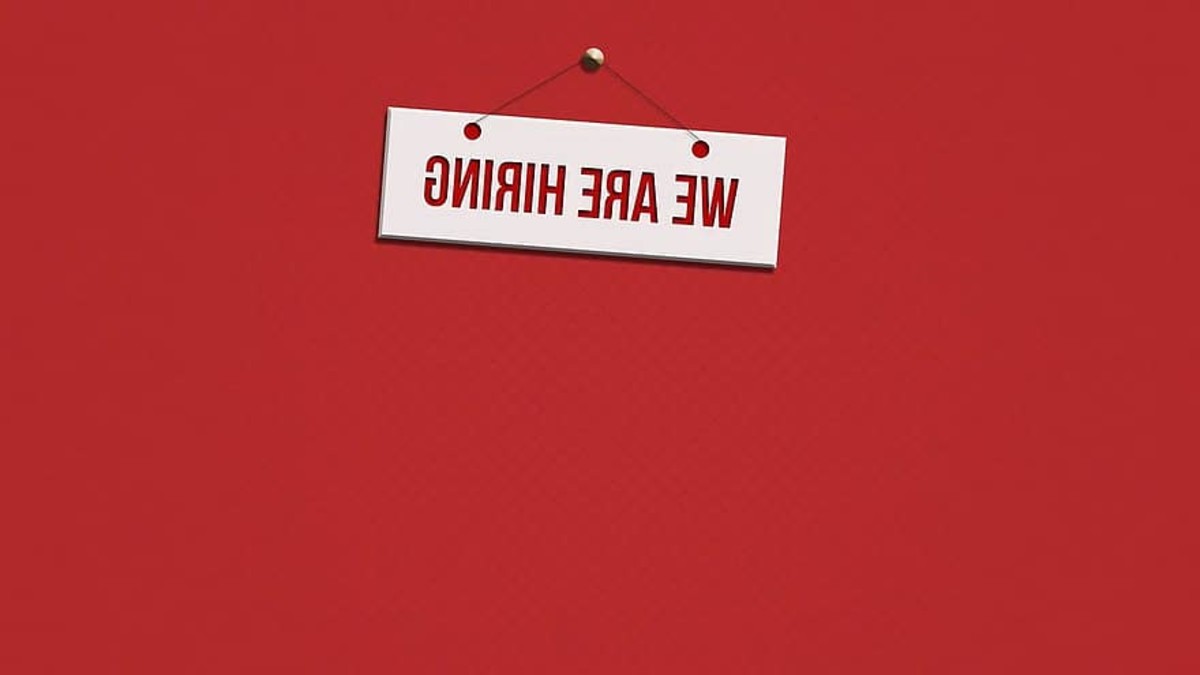- HubPages»
- Business and Employment»
- Employment & Jobs»
- Interviewing for a Job
Employment After College- Some Common Interview Questions

It’s time to get started in your career, so here are five interview tips and five common interview questions for all of you recent college grads.
Prepare With a Pre-Interview
You know that there are typical questions that you’re going to get such as, “Tell me a little bit about yourself,” “What makes you the best candidate,” or, “What are your three biggest strengths and weaknesses?” These are typical interview questions, so you can study for your interview by practicing them. If you know the kind of questions that are asked in your particular industry, make sure to study those as well.
Remember To Research
Whichever company you decide to interview with, make sure that you know their business thoroughly. It’s just so easy these days to go online and search something about the company that you’re interviewing with. Find out where they’re located, where their headquarters are, when they were founded, who were the founders, or who is this current C.E.O.
Find out what is important to that company, and make sure that when you go to your interview, you tailor your responses to that type of culture. If the company’s website shows that they’re really passionate about seeing their employees succeed and, for example, show each of their employees’ accomplishments, degrees, and where they got them from, make sure you point that out in your resume. Show them that your interests align directly with theirs.

Dress For Success
It’s important to dress for the position that you want. Even if you’re going for an interview with a restaurant, you still don’t want to dress in jeans and a t-shirt, even though you may be wearing jeans and a t-shirt as the general manager every day.
The same goes for a position in I.T. Typically, people in the information technology field can wear jeans and shirts every day. What you want to do when you go for an interview is dress up. Make sure they know that you’re serious about this job and you’re ready to get started.
Be On Time
It’s so important to be on time, and this is one situation where candidates really knock themselves out right away. If you’re not sure where you’re going, take the time to scout out the area. Give yourself more time for morning traffic or possible construction in the mid-afternoon. You know how those slow-moving trucks love to be on the road at 11 o’clock, so make sure you keep that in mind.
Follow Up
The interview is not over once you leave. Be sure to ask questions at the end of the meeting including “When are you looking to fill this position? How should I follow up?” You may get some more information that was not just offered. They may say, “Yes, we’re looking to fill the position next week.” Then, if you don’t hear a call within a week, you know that you didn’t get the position. If they say, “Well, we’re taking our time to search for candidates. This is a new position”, you kind of know that maybe they have more time.
Follow up immediately with an email addressing your interviewer and anyone else that was included in the process of you getting the interview, and then follow up with a letter that very same day so that it arrives about a day or so after your interview. You want to make sure that they remember you before they go to the next candidate; and then a couple of days later, when they may have forgotten about you, you put yourself in their minds once again.
Common Interview Questions

Manu questions are asked when you apply for a job and you’re called for an interview. If you are well prepared, you will end your interview successfully.
Tell Me Something About Yourself
The interviewer is checking your confidence, enthusiasm and the passion that you answer this with. He is not really interested in your reply. This is the perfect time to show off your communication skills.
Many people end up saying “I love watching movies and partying. I have many friends, so I really enjoy going out and having fun.” No, that’s not the right way to answer this question. What you need to discuss is your past work experience, if you have any, your education, skills, and your personal interests. For example, you can say “I lived two years in the UK and studied International Law. I also worked for a law firm for about eight months, and enjoy reading. In my spare time, I like to go out jogging with my dog.”
What Are Your Strengths?
Here the interviewer is looking at how positively you think about yourself. It’s quite a general question, so there’s no right or wrong answer, but if you give out one-liners such as “I’m a very friendly person, I love being with people and people love being with me” it won’t be enough for an interview.
What you can say is “my strongest trait is my attention to detail. I believe in carefully planning before executing. In fact, when I was in college I used to organize my week in my calendar.
I am also someone who loves to read about technology. My friends call me all the time asking for help to set up their gadgets, or asking how to fix a Word document that is all messed up.”
What Are Your Weaknesses?
For this question, you shouldn’t be negative about yourself. I have heard people saying “I am a very impatient person” or “I get angry easily.” Well, that’s not the right answer. Maybe that is your weakness, but you don’t need to bring it out.
A correct answer would be something like “I think my weakness is that I am way too detail-oriented. I want everything to be perfect, but then realize that I’m just losing out on time. This makes me submit late projects sometimes. “
What you are doing here is displaying that maybe you run out of time, but you are also adding a positive aspect: you are a perfectionist. And that’s what we saw as a strength in the previous question.
Which Are Your Long Term or Your Short Term Goals? Or Where do You See Yourself in Five Years From Now?
I’ve seen people struggle to answer this question. Maybe you have no idea where you would like to be, so usually people end up saying “I would like to be the CEO of this company” or “I would like to own a Yatch.”
That doesn’t sound right. The interviewer is taking note of how committed you are going to be at this company. He wants to know loyal you would be. One answer you can give would be “five years from now I would like to be in a management position. Until then, I would like to gain some practical experience, eventually becoming a manager. Of course, I would like to learn a lot of new things from my team members.”

What Do You Know About Us, or Tell Me Something About Our Company
The interviewer has knowledge about his own business, right? What he is looking for is whether you are serious about this job or not. Many applicants are discarded because of lack of research about the company
Go online, check out their website and learn about the positive attributes of the business. Learn about their products, their history, etc.
An answer you could give would be something like “your company is very well known for the great customer service it offers, which made you win an award for the best customer service provider in the country.”
How Well Do You Handle Change?
Your interviewer wants to know if you would you be able to cope up with change since companies come up with different strategies, employees come and go, etc.
People usually end up giving a short answer like “Oh, of course, I am great at handling change." Well, trust me, your interviewer will not be impressed with this answer. A correct reply to this question could be “I am used to handling change. At my previous company, one of our bosses had to quit, and his replacement completely modified our strategy.”
“I’m very flexible and hardworking too, so with the help of all the team the results were pretty good.”
How Well Do You Work Under Pressure?
The interviewer wants to know how easily do you get stressed out. Do you panic under pressure? Businesses these days expect you to take more and more responsibility and of course a greater workload.
The way to answer is “working with or without pressure is just the same for me. In fact, for one assignment in college, my team and I were given a major project which had to be completed in five days but usually takes ten. We prioritized our work and, in a very organized manner, completed the project before the deadline. Of course, we had to work late nights, but that definitely helped us submit our project in five days.”
How Do You Handle Important Decisions?
If the interviewer is hiring you for a management position or a lead position, he wants to know how you would handle a critical issue or make a major decision.
Many people end up saying “you know what, I really haven’t come across such a case. I haven’t dealt with such difficult situations.”
That’s not the right answer you should give. You could say, for example, “handling decisions is definitely considered to be a little tricky, but I am sure I could do it. I would weigh the pros and cons and take some advice from my team members.”

